目次
ドストエフスキー『虐げられた人びと』の概要とあらすじ
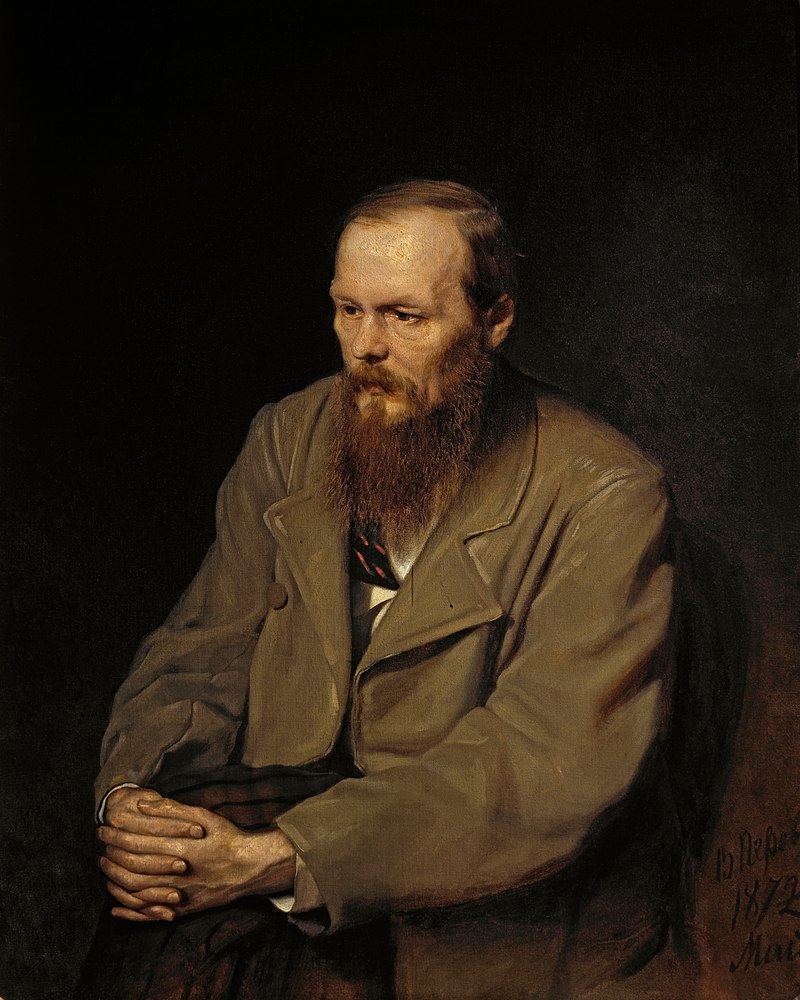 フョードル・ドストエフスキー(1821-1881)Wikipediaより
フョードル・ドストエフスキー(1821-1881)Wikipediaより
『虐げられた人びと』は1861年1月から7月に『時代』誌に連載された長編小説です。
私が読んだのは新潮社出版の小笠原豊樹訳の『虐げられた人びと』です。
早速この本について見ていきましょう。
老人の死で始まり少女の死で終わる、この物語――。
1860年代初め、農奴解放を迎え、ロシアはブルジョア社会へ。
同時期、移行期に入った文豪の長編作品。
民主主義的理想を掲げたえず軽薄な言動をとっては弁明し、結果として残酷な事態を招来しながら、誰にも憎まれない青年アリョーシャと、傷つきやすい清純な娘ナターシャの悲恋を中心に、農奴解放を迎え本格的なブルジョア社会へ移行しようとしていたロシアの混乱の時代における虐げられた人びとの姿を描く。人道主義を基調とし、文豪の限りなく優しい心情を吐露した抒情溢れる傑作。
Amazon商品紹介ページより
主人公のワーニャ(イワン・ペトローヴィチ)はイフメーネフ老夫婦のもと育てられ、その娘のナターシャに恋しています。
しかしナターシャは、口先だけで何一つ自分の考えを持たない無邪気な男アリョーシャと恋人関係にあります。
ダメ男すぎるアリョーシャは無邪気に他の女を愛し、ナターシャを苦しめます。驚くべきことに彼には全く悪意はありません。その女を愛しているのは事実なくせに、ナターシャのもとに戻ればこれまた無邪気にナターシャのことも愛するのです。
ナターシャに恋するワーニャはそんな2人にやきもきします。
しかしナターシャはアリョーシャを捨てられません。それほど激しい恋だったのです。
ダメ男にはまる典型的なパターンです。彼をわかってあげられるのは自分だけ。どうしようもないあの人を守れるのは私だけという精神状況です。
そんなナターシャを支えざるをえないワーニャはなんとも痛ましいです。「なんでこんなダメ男じゃなくて私を選んでくれないのか・・・」
ドストエフスキー得意のこじれた人間模様がいよいよこの作品では現れてきます。
そしてこの小説ではこの3人の恋模様という筋の他に、謎の老人と薄幸の少女ネリーの物語、アリョーシャの父ワルコフスキー公爵との対決という筋が絡んできます。
謎の老人と薄幸の少女ネリーの物語は、イギリスの文豪チャールズ・ディケンズの『骨董屋』という作品のオマージュであると言われています。
あわせて読みたい
ディケンズ『骨董屋』あらすじと感想~ドストエフスキー『虐げられた人びと』に強い影響!
『骨董屋』の主人公たるネルは、ドストエフスキーの『虐げられた人びと』でもネリーという名前で登場します。もちろん、そっくりそのまま同じ境遇、性格ではありませんが『骨董屋』に強いインスピレーションを受けているのは否定できません。
また、この作品はキリスト教作家ディケンズという側面が強く出てきた作品でもあります。ドストエフスキーはディケンズのそのような側面も尊敬していたそうです。
『骨董屋』の主人公の少女の名前もネルであり、作中では貧しく悲惨な状況に落ち込んでも持ち前の明るさと強い精神力で愛する祖父を支え続ける健気な姿が印象的です。
ドストエフスキーはディケンズの小説を愛し、そこから『虐げられた人びと』の中にアイディアを持ち込んだのです。
また、アリョーシャの父ワルコフスキー公爵との対決は、思想の問題を提起します。
悪の勝利。理想主義、性善説の敗北。
ワルコフスキー公爵は非常にしたたかな人物で、悪のカリスマの原型とでも言うことができる存在です。
主人公のワーニャもナターシャも、そしてダメ男アリョーシャも基本的には人間愛を持つ善人です。
しかしその善がいかにも薄っぺらで弱い。
人間の本性は善であるという楽観的な考え方を、ワルコフスキー公爵はいとも簡単にやっつけてしまいます。
シベリア流刑を経て、かつて抱いていた人道主義や理想主義が通用しない世界を目の当たりにしたドストエフスキーの思想がワルコフスキーを通して語られているかのようです。
とはいえ、全体としてはこの作品では後の小説『地下室の手記』ほど徹底した理想主義、合理主義の否定にはまだいたっていません。
ですがこの作品ではその萌芽がすでにあちらこちらで見え始めているという点で、ドストエフスキーの思想の流れを感じられる作品です。
感想
私個人の感想ですがこの作品は一言で言えば、「歯がゆい!」に尽きます。
典型的な「いい人」、主人公のワーニャが幼馴染で才色兼備のナターシャに恋をしています。しかしナターシャはあろうことか典型的なダメ男に恋をし、家族まで捨てて破滅にまっしぐら。
ワーニャはそんなナターシャを見捨てられず、あれやこれやと世話をしたり、恋敵との取り持ちまでさせられる始末。
「いい人」の悲哀がこれでもかと描かれています。
ですがこれはちょっと見方を変えれば、『「いい人」から見た「いい女」』がいかにして「ダメ男」にはまっていくのか』ということが描かれているということにもなります。
こう考えてみると『「いい人」が思う「いい女」』ってはたして本当に「いい女」』なのかという、なんともややこしい問題が現れてくるような気がしました。いや、そもそも「いい人」って何なのでしょう?こっちこそ本当に「いい人」と呼べる人間なのでしょうか。
ですが、これは男女問わず本当によくあるパターンですよね・・・現代の小説やドラマでもよく見る筋書きです。
まあ、ただこの小説ではナターシャが恋してしまうアリョーシャはたしかにダメ男なのですが、決して悪い人間ではないというのがなんともドストエフスキーらしい書き方だなと思います。
何が悪くて何が良いかも判断できない赤ちゃんみたいな男なのです。あまりに無邪気すぎるのです。悪意が全くないのです。
だからこそ振り回されるナターシャもどうしても彼を許してしまい、やがて振り回されることから抜け出せなくなるのです。
この作品はドストエフスキーの長編小説の中でもストーリー展開のテンポがよく、読みやすさという点では上位にくる作品ではないかと個人的には思っています。
その分『罪と罰』や『カラマーゾフの兄弟』の五大長編のようなずっしりとした心理ドラマというドストエフスキーらしさが少し薄い作品かなとも思えます。
とはいえ、小説としてのストーリー展開の面白さはピカイチの作品です。個人的にはすごく好きな作品です。ドストエフスキー作品の中でもとても読みやすかったいうのが正直な感想です。
以上、「ドストエフスキー『虐げられた人びと』いびつな三角関係はどこへ向かう?」でした。
Amazon商品ページはこちら↓
虐げられた人びと (新潮文庫)
次の記事はこちら
あわせて読みたい
ドストエフスキー『いまわしい話』あらすじと感想~その優しさは他人には迷惑きわまりないものなのかも...
様々な参考書や解説を読んでいると、『地下室の手記』以前のドストエフスキーは人道主義(ヒューマニズム)の作家であると解説されますが、初めてドストエフスキー全集を読み始めた時にはその意味がなかなかわかりませんでした。
しかし全集を読み進めてきてこの作品とぶつかった時に、「おお!なるほど!」とすっかりそのもやもやが晴れることになりました。
ドストエフスキーの人道主義を知る上で非常に参考になる作品です。
前の記事はこちら
あわせて読みたい
ドストエフスキー『死の家の記録』あらすじと感想~シベリア流刑での極限生活を描いた傑作!
この作品は心理探究の怪物であるドストエフスキーが、シベリアの監獄という極限状況の中、常人ならざる囚人たちと共に生活し、間近で彼らを観察した手記なのですから面白くないわけがありません。あのトルストイやツルゲーネフが絶賛するように、今作の情景描写はまるで映画を見ているかのようにリアルに、そして臨場感たっぷりで描かれています。
この小説はドストエフスキー作品の中で『罪と罰』と並んでその入り口としておすすめな作品です。
関連記事
あわせて読みたい
ドストエフスキーおすすめ作品7選!ロシア文学の面白さが詰まった珠玉の名作をご紹介!
ドストエフスキーといえば『罪と罰』や『カラマーゾフの兄弟』など文学界では知らぬ者のない名作を残した圧倒的巨人です。彼は人間心理の深層をえぐり出し、重厚で混沌とした世界を私達の前に開いてみせます。そして彼の独特な語り口とあくの強い個性的な人物達が織りなす物語には何とも言えない黒魔術的な魅力があります。私もその黒魔術に魅せられた一人です。
この記事ではそんなドストエフスキーのおすすめ作品や参考書を紹介していきます。またどの翻訳がおすすめか、何から読み始めるべきかなどのお役立ち情報もお話ししていきます。
あわせて読みたい
イギリスの文豪ディケンズとは~ディケンズなくしてドストエフスキーなし!
ディケンズはキリスト教作家としても尊敬されていました。ドストエフスキーが彼のことを非常に大切にしていたのもここに根があります。
ドストエフスキーは彼をキリスト教作家として尊敬していました。
そしてディケンズの愛に満ちた作品を愛し、その優しい世界観を感じていたのかもしれません。
悪のはびこる世界でも、優しい愛ある人間性を感じることができるのがディケンズの作品です。
だからこそドストエフスキーは子どもたちへの教育や、妻アンナ夫人にディケンズを勧めていたのかもしれません。
あわせて読みたい
ドストエフスキー年表と作品一覧~ドストエフスキーの生涯をざっくりと
この記事ではドストエフスキー作品一覧と彼の生涯を簡潔にまとめた年表を掲載します。
ドストエフスキーの生涯は簡易的な年表では言い尽くせない波乱万丈なものです。特にアンナ夫人とのヨーロッパ外遊の頃は賭博に狂った壮絶な日々を送っています。
ドストエフスキー作品は彼の生涯とも密接な関係を持っています。彼の生涯を知ることは作品を知る上でも非常に大きな助けとなるのではないでしょうか。
あわせて読みたい
おすすめドストエフスキー解説書一覧~これを読めばドストエフスキー作品がもっと面白くなる!
この記事ではこれまで紹介してきましたドストエフスキー論を一覧できるようにまとめてみました。
それぞれの著作にはそれぞれの個性があります。
また、読み手の興味関心の方向によってもどの本がおすすめかは変わってくることでしょう。
簡単にですがそれぞれのドストエフスキー論の特徴をまとめましたので、少しでも皆様のお役に立てれば嬉しく思います。
あわせて読みたい
ドストエフスキーとキリスト教のおすすめ解説書一覧~小説に込められたドストエフスキーの宗教観とは
ドストエフスキーとキリスト教は切っても切れない関係です。
キリスト教と言えば私たちはカトリックやプロテスタントをイメージしてしまいがちですが、ドストエフスキーが信仰したのはロシア正教というものでした。
そうした背景を知った上でドストエフスキーを読むと、それまで見てきたものとは全く違った小説の世界観が見えてきます。
キリスト教を知ることはドストエフスキーを楽しむ上で非常に役に立ちます。
あわせて読みたい
ドストエフスキーの最高傑作『カラマーゾフの兄弟』あらすじと感想~神とは?人生とは?自由とは?
『カラマーゾフの兄弟』が発表されてから120年。これだけの月日が経っても変わらずに多くの人から愛され続けているのはそれなりの理由があります。
この物語が持つ魅力があるからこそ、読者に訴えかける何かがあるからこそ、こうして読み継がれているのだと思います。
『カラマーゾフの兄弟』はドストエフスキー作品の中でも私が最も好きな、そして思い入れのある作品です。
長編小説ということでなかなか手に取りにくい作品ではありますが、心の底からおすすめしたい作品です。
あわせて読みたい
ドストエフスキー『悪霊』あらすじと感想~革命家達の陰惨な現実を暴露したドストエフスキーの代表作
この作品の持つ魔術的な力は計り知れません。
あくが強い人物たちが一つの舞台でぶつかり合い、自らの存在を主張し合います。
まさに「悪霊」に憑りつかれたごとく、悪役たちは巧妙にそして残酷に社会を混乱に陥れていきます。その過程があまりにリアルで、読んでいてお腹の辺りがグラグラ煮え立ってくるような感情が私の中に生まれてくるほどでした。
やがてそれは生きるか死ぬかの究極の思想対決へと進んで行き、一体これからどうなるのか、彼らの心の中で何が起こっているのかと一時も目が離せぬ展開となっていきます。
これは恐るべき作品です
あわせて読みたい
ドストエフスキー『白痴』あらすじと感想~あのトルストイも絶賛した名作!ドストエフスキーによるキリ...
「無条件に美しい人間」キリストを描くことを目指したこの作品ですが、キリスト教の知識がなくとも十分すぎるほど楽しむことができます。(もちろん、知っていた方がより深く味わうことができますが)
それほど小説として、芸術として優れた作品となっています。
『罪と罰』の影に隠れてあまり表には出てこない作品ですが、ドストエフスキーの代表作として非常に高い評価を受けている作品です。これは面白いです。私も強くおすすめします。
あわせて読みたい
ドストエフスキーの代表作『罪と罰』あらすじと感想~ドストエフスキーの黒魔術を体感するならこの作品
ドストエフスキーがこの小説を書き上げた時「まるで熱病のようなものに焼かれながら」精神的にも肉体的にも極限状態で朝から晩まで部屋に閉じこもって執筆していたそうです。
もはや狂気の領域。
そんな怪物ドストエフスキーが一気に書き上げたこの作品は黒魔術的な魔力を持っています。
百聞は一見に如かずです。騙されたと思ってまずは読んでみてください。それだけの価値があります。黒魔術の意味もきっとわかると思います。これはなかなかない読書体験になると思います。
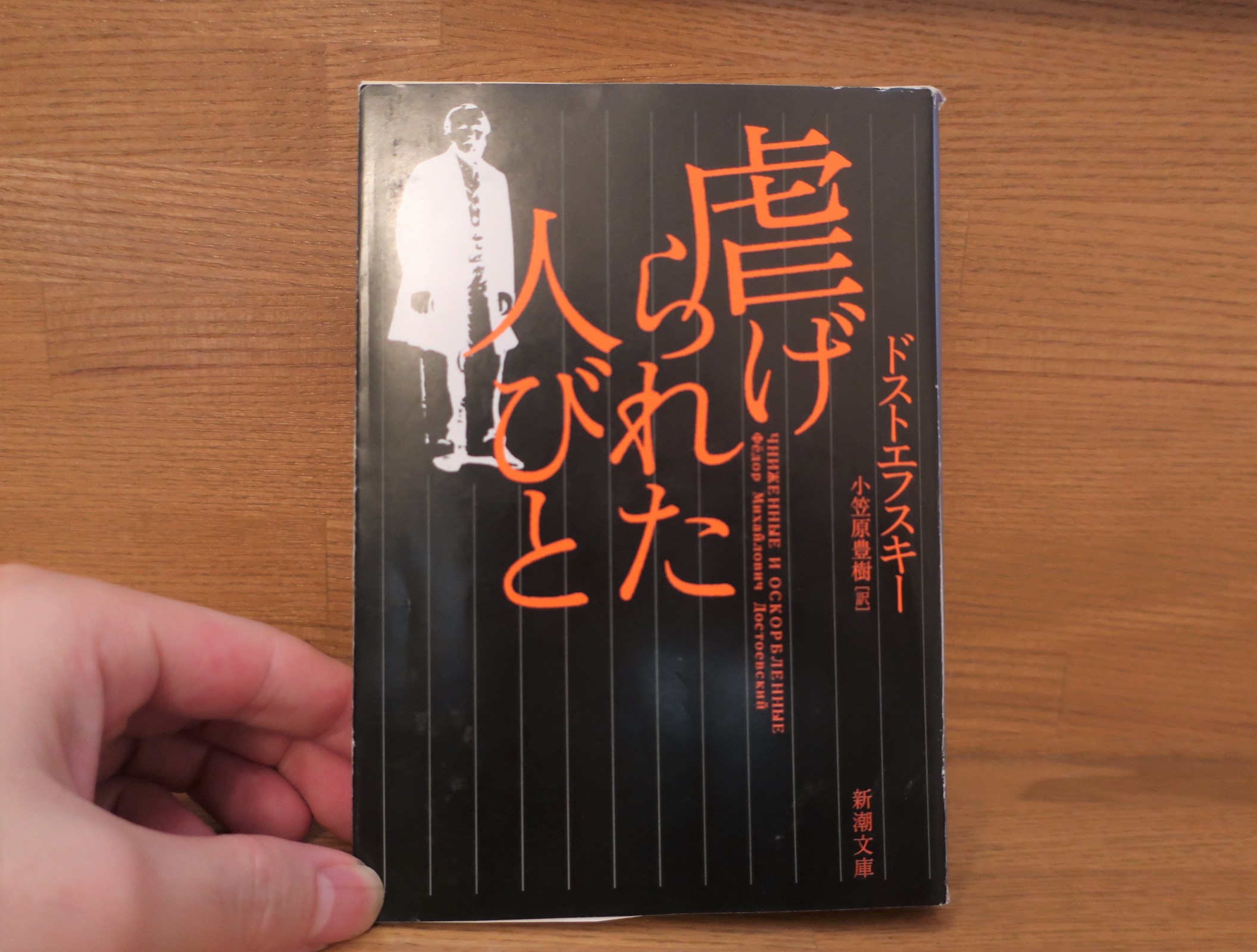

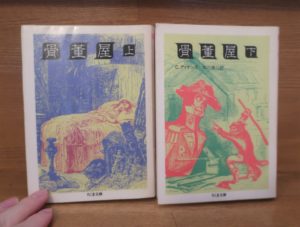
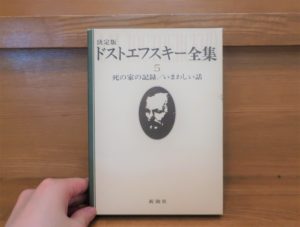

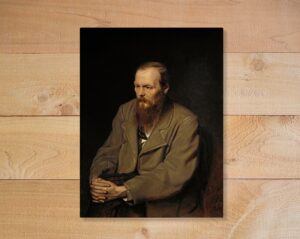
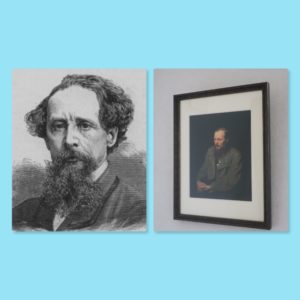
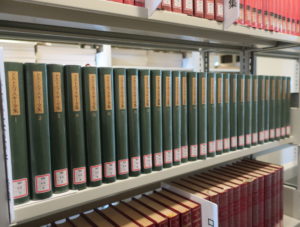
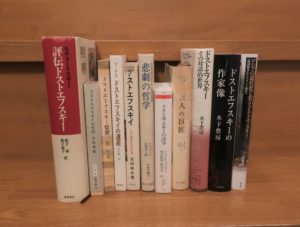
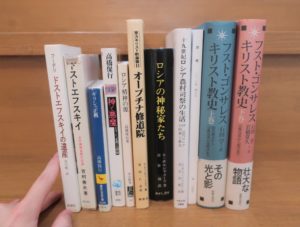
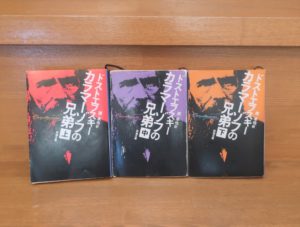

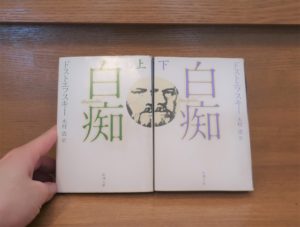
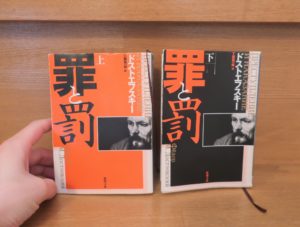

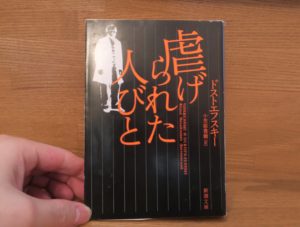
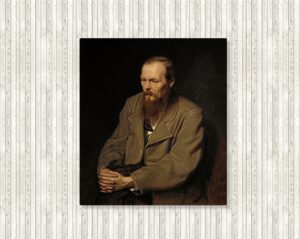
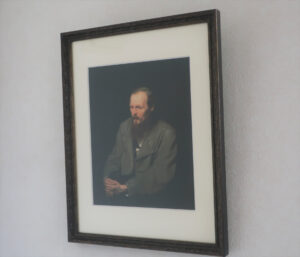
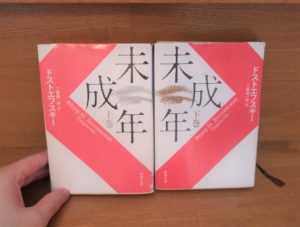
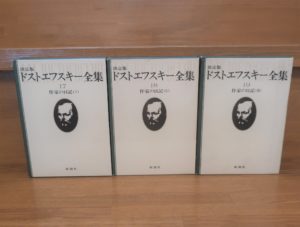
コメント